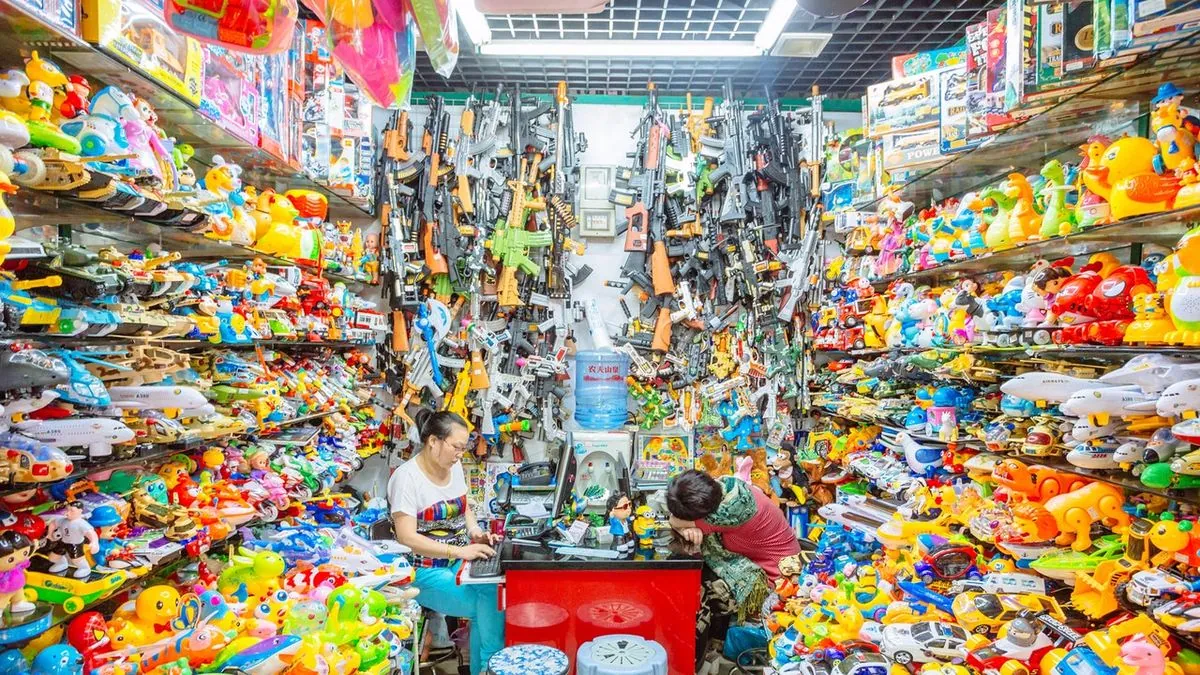In the eastern Chinese city of Yiwu, a bustling wholesale marketplace could potentially offer early insights into the outcome of the upcoming November 2024 US presidential election. This city, known as the "World's Supermarket," houses one of the largest wholesale markets globally, attracting retailers seeking affordable items for their inventories.
The Yiwu International Trade City, spanning an impressive 5.5 million square meters, has become a focal point for campaign merchandise production. With over 75,000 booths and 100,000 suppliers, this vast marketplace offers a wide array of products, including replicas of US campaign paraphernalia. These items, often priced lower than official merchandise, have flooded both online platforms and street vendors in the United States.
This influx of affordable campaign items has given rise to what Chinese observers of American politics call the "Yiwu Index." This unofficial metric attempts to predict election outcomes based on the sales trends of campaign merchandise. In 2016, the index accurately forecasted Donald Trump's victory, contradicting conventional polling wisdom.
Zoe Liu Zongyuan from the Council on Foreign Relations think tank explains, "When everybody was saying that the Democrats, Hillary Clinton, was going to win, the index suggested otherwise. It's not the Chinese who are buying this stuff, it's the Americans, the delegations, the rallies, those people, who buy it. Could that be an indicator for how passionate people or voters are?"
However, the Yiwu Index is not without its limitations. Its accuracy was challenged in the 2020 election when sales of Trump merchandise outpaced those of Joe Biden, who ultimately won the presidency. This discrepancy highlights the need for caution when interpreting merchandise sales as a predictor of electoral outcomes.
The index's reliability is further complicated by the nature of Yiwu's market, which primarily deals in wholesale transactions rather than direct consumer sales. Large orders from suppliers anticipating increased demand as the election approaches can skew the data. Additionally, supporter behavior varies between political parties, with Trump supporters generally more inclined to display their allegiance through merchandise.
Despite these limitations, the Yiwu Index continues to attract attention. With the upcoming election featuring candidates Trump and Kamala Harris, both of whom have proposed anti-China policies, Beijing is likely to monitor these trends closely. The city's unique position in global trade, including direct freight connections to European cities and hosting over 13,000 foreign residents from more than 100 countries, underscores its significance in international commerce.
As the November 2024 election approaches, the Yiwu market's campaign merchandise sales may offer interesting insights. However, it's crucial to consider these trends as just one of many factors in the complex landscape of electoral predictions.
